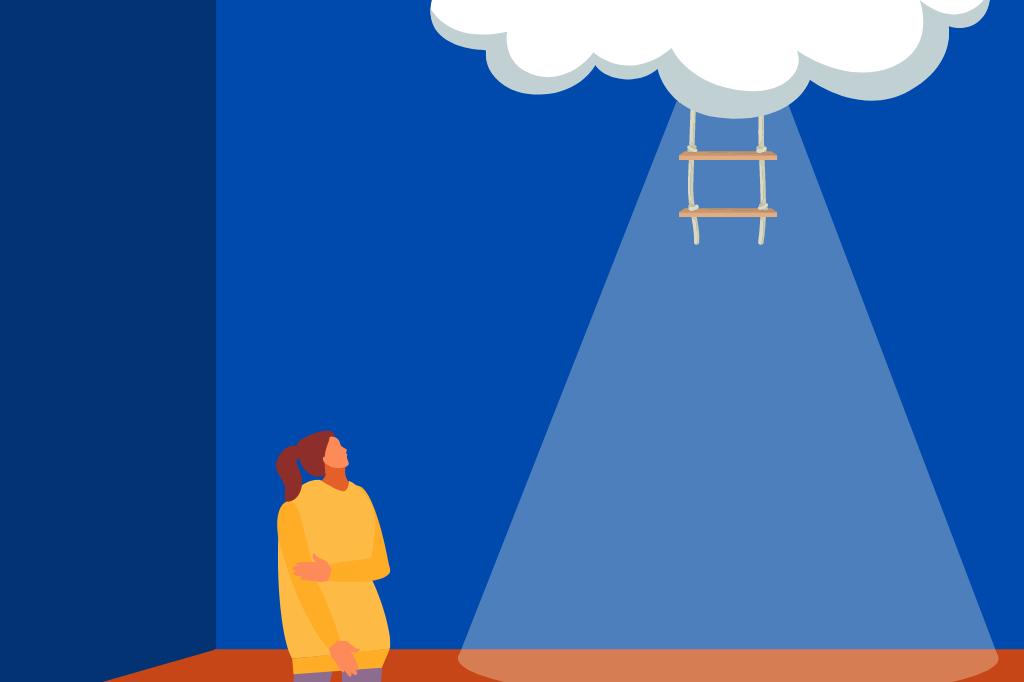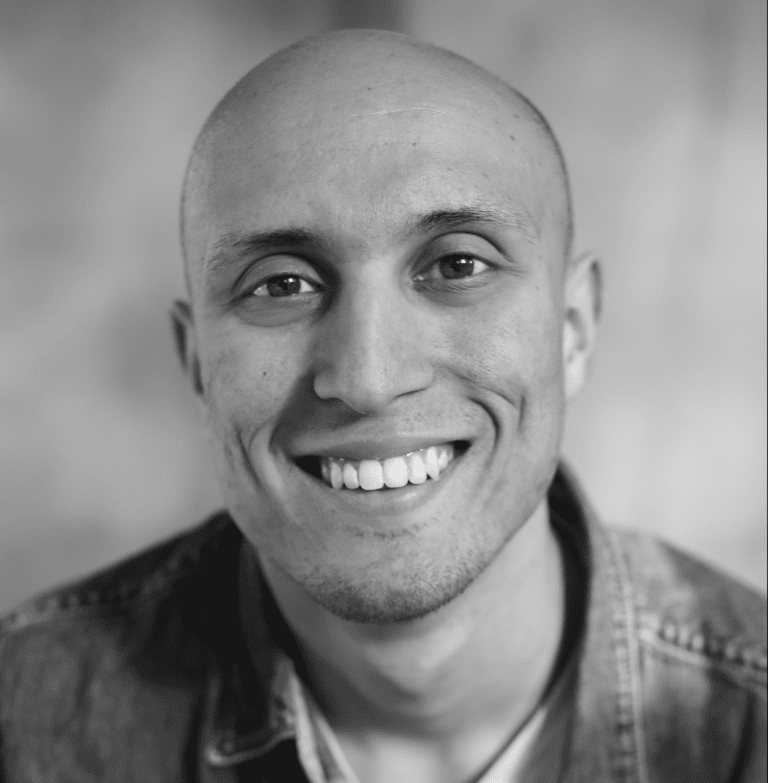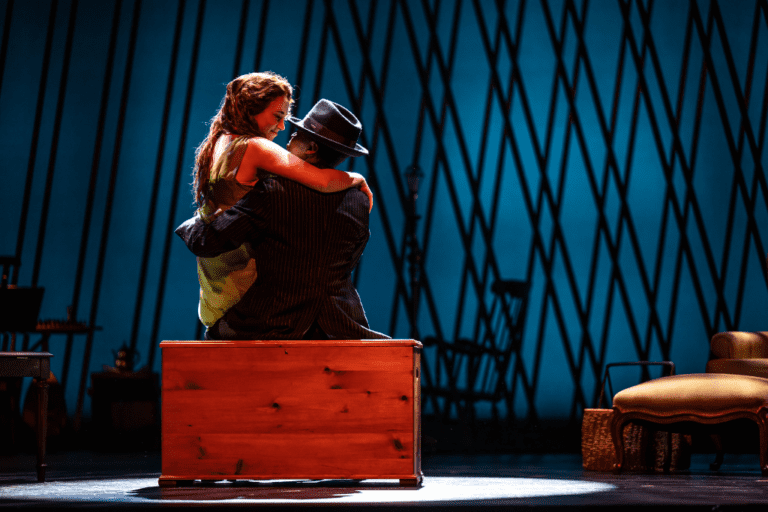Tales from a Disabled Theatre School Grad
Before one discusses disability in theatre, it is important to understand that theatre, all theatre, is inherently ableist. From being allowed to perform on stage to having access to the buildings, theatre has obstacles toward disabled acceptance literally built into it. Acting, in particular, exists on the idea that the artist is able to do certain things: memorize scripts, perform physical actions, understand “typical” social norms, work long hours with few breaks, and “see” or “hear” the cues in the show. Overall, disabled actors in the theatre are expected to inherently know how to exist in an able-bodied and able-supremacist society. If they cannot, or struggle to do so, they are often bullied, ridiculed, and harassed.
My experiences in theatre school began in 2016 when I uprooted myself from my home and moved across the country to attend what I believed was a prominent Canadian theatre program in BC. I’ve wanted to become an actor since I was fourteen and believed that getting a degree would make me a better actor and better equip me to achieve my artistic dreams. Going into it, I had no idea of its reputation for racism, sexism, and other forms of discrimination. I do not come from an artistic household or theatre culture, a culture that I have come to learn prioritizes maintaining racist, sexist and ableist systems over a person’s humanity. Entering my program, I did not know that I would be not only the one physically disabled person in my year, but also in the whole department. I had no idea that by pursuing an acting degree, I would become the first physically disabled ever in this department to do this.
… Disability is not a costume or an inconvenience; it is a perspective, one that was neither respected nor acknowledged at my school and countless others.
From the moment I started my degree, I was reminded of growing up as a disabled person. I became a curiosity, a freak, and found myself having to field strange and inappropriate questions about my life, my diagnosis, and how I exist as a disabled person. These questions did not come exclusively in acting classes, nor were they questions that had anything to do with the craft. Although this was all familiar to me, it was different in the sense that it co-existed with an inherent evaluation of my worth and my well-suitededness for theatre. It seemed that everyone, from teachers to students, was assessing me. Throughout first year, I struggled to find my place within a community that operated as if we were back in high school and was deeply rooted in maintaining the toxic systems that supported its weight. It was typical for students and teachers to ridicule and ignore non-White students; being both disabled and a person of colour, I was essentially ignored entirely. I had to work very hard to get the kind of attention that White, able-bodied students got automatically.
My professors quickly decided that I should play Richard III and Caliban from Shakespeare’s canon because of disability (and my race). I was told that playing Orlando from As You Like It or any other major Shakespearean character was “controversial” due to my disability. The assumption was that a disabled person can’t be a physically strong or attractive individual. Whilst I was never specifically assigned either character, the assertion was repeated so much that I internalized it: I started to agree with my professors. In my mind, I reduced myself to just an actor who, due to my disability, could only play “bit” roles or disabled characters. I cannot speak for all disabled actors, but I can say that while able-bodied actors “cripping up” or playing a disabled character is offensive and hurtful, I and many others would love the chance to play characters that are not specifically disabled. There’s nothing in Shakespeare that says a disabled person could not play Orlando, Romeo, Henry V, Macbeth, or anyone else, so why do we impose these rules?
In many theatre schools, there is a misconception that the students are morally superior to the teachers. This was certainly true in my department. Rumours are spread, cliques are formed, and students are bullied, sometimes to the point of leaving school, all tied into an undeniable racial bias and disability discrimination that allows certain students to get ahead. The students in my department portrayed the professors as being out-of-touch people who regularly said and did problematic things. This was true; however, in my experience, theatre students can be equally responsible for creating toxic and discriminatory environments. This became abundantly clear in my second year when I officially entered the performance focus. It began when my fellow actors complained about the accommodations I had in class for my disability. As a result of these complaints, I lost those accommodations. From there, the discrimination I faced from both my fellow actors and professors intensified drastically.
During one of our acting classes, we studied a play that had a character with a mental disability. The teacher cast an able-bodied student in that role. The resulting performance was a caricatured and offensive portrayal of a disabled person, complete with bizarre facial expressions and physical contortions the performer associated with disabled people. As I sat there feeling humiliated and confused, the rest of the class, teacher and students alike, erupted in applause, showering adoration on a performance that was equal parts horrifying and painful for me to watch. “Cripface,” or the act of an able bodied person playing a disabled person, is a huge problem in the performing arts. Even in 2021, disability is seen as something foreign and disgusting, something you don’t want and should fear—in other words, a theatrical goldmine. Time and time again, able-bodied actors are celebrated for their “commitment,” turning disabilities into costumes they can easily shed. While I had to field negative questions and assumptions about my ability and character regularly, this able-bodied student received praise and love for his portrayal of someone who must face and live with those indignities. Regardless of how “good” these performances are, they will never be authentic because able-bodied actors cannot walk in our shoes. But disability is not a costume or an inconvenience; it is a perspective, one that was neither respected nor acknowledged at my school and countless others.
In third year, things went from relatively bad to downright terrible. The class began closing off and becoming even more cliquey than in previous years. My fellow students resented that I came to the program from Toronto, where most of them wanted to go after graduation, and there was a profound resentment and anger over having someone physically different in “their” class. As is common in theatre schools, there was a misplaced feeling of complete ownership over spaces that were created by people who look and act like them. Jealousy and resentment of minority excellence is a real problem in the arts, and that same behaviour extends to disabled people. When minorities display talent and success, White, able-bodied students seem to feel their place in the theatre hierarchy is threatened.
My classmates’ disgust was evident in their reactions to my right hand. I have cerebral palsy, which causes my right hand to be largely out of my control; my hand sometimes bumps into people, grabs, or behaves unusually. This is not a conscious choice. I am not purposely doing anything, and it definitely isn’t personal. Unfortunately, my acting class did not understand this and again, I was ostracized for the way my body was born. Another aspect of my body is that I sometimes walk with a limp, which became a source of amusement for my class. I was laughed at for being in pain. Eventually, both myself and the other person of colour in the class were shut out and made to feel like we didn’t belong and weren’t part of the class.
Apparently, it was my job to ignore the ableism I experienced to make my able-bodied peers comfortable.
Ostracization, daily ableism, and racist microaggressions pushed me into a discrimination-fuelled depression, and I started to act out in the hopes of getting someone to notice how lonely and depressed I was. As a result, the class began to get physically and verbally abusive: I was physically pushed around, cursed at, and had cruel things said behind my back and occasionally to my face. My cohort, the people I had to spend most of my time with, would make disparaging remarks and say cruel things during class, in front of the teachers, who never did anything about it. Whenever I worked up the courage to complain about it, things deteriorated further. Somehow, the class thought that complaining about their poor behaviour was worse than the behaviour itself. I presented many of my experiences with fellow students before the faculty, who had often witnessed these occurrences or heard from me about them, but they chose to do nothing about it. When I complained about it, my trauma was simply filed away, never to be seen or heard from again. I cannot speak to the experiences of other minorities in theatre schools, but from what I have heard, and in my personal experience, the faculty’s apathy was devastating. If they had cared enough to do something about what I was going through and educated their students on anti-oppressive behaviour, my time at school would have been much better.
Fourth year carried much of the same, but with a new flavour of microaggression. Disability slurs, such as “crippled” and “retarded” became commonplace. Then my class began to do things for me. I’m sure that sounds nice, but they only did things for me because they didn’t trust me to do anything for myself. This effectively eliminated my agency and ability to learn. The disabled community, specifically the physically disabled community, has long struggled with the assumption that we are unable, incompetent, or too weak to do activities by ourselves. This assumption is rooted in ableism and the belief that able-bodied people are inherently more capable. I will ask for help when I need it, and in this case, I certainly did not ask for help. Not only did my peers treat me like a child, but they also upped the passive-aggressive, microaggressions from the previous year. I resigned myself to just make it to graduation and go home.
… It is important that disabled people and artists understand that not being able to perform like able-bodied people does not make us unfit, unable, or lesser than them.
Then the pandemic happened.
I want to be clear that Covid has been disastrous, and I do not want to make light of the pain people have experienced. But for me, the pandemic provided an escape from a traumatic and brutal experience: I got to go back to my family in Toronto and have a fresh start. Although it’s been more than a year since I escaped that environment, I still have nightmares and panic attacks. I struggle to breathe sometimes and take medication for depression and anxiety. But I am recovering, slowly but surely.
Disabled artists have yet to gain significant space and respect in the performing arts. The abuse that I suffered and the cruelty that disabled artists face in the arts need to be addressed. I believe there needs to be a greater global movement that specifically addresses and condemns Ableism, whether in the arts or life in general. It’s easy to blame students’ behaviour on youth, inexperience, and immaturity. But those behaviours, reinforced by education, continue post-graduation. The people who tortured and abused me continue to perform in their community. Some have residencies with local theatres and my White classmates continue to play non-White characters. There has been no accountability for their actions, and I don’t think there ever will be: It’s not fair, but I have to live with that. However, despite the abuse we may face, it is important that disabled people and artists understand that not being able to perform like able-bodied people does not make us unfit, unable, or lesser than them. It does not make us second class citizens or second-rate artists. It makes us beautiful.










Comments